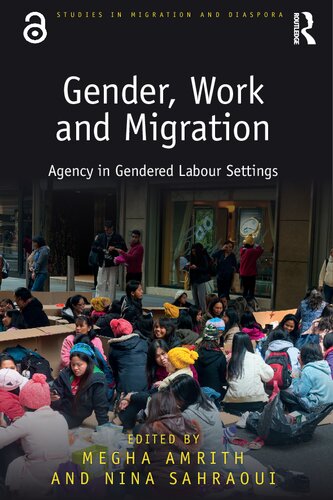

Most ebook files are in PDF format, so you can easily read them using various software such as Foxit Reader or directly on the Google Chrome browser.
Some ebook files are released by publishers in other formats such as .awz, .mobi, .epub, .fb2, etc. You may need to install specific software to read these formats on mobile/PC, such as Calibre.
Please read the tutorial at this link. https://ebooknice.com/page/post?id=faq
We offer FREE conversion to the popular formats you request; however, this may take some time. Therefore, right after payment, please email us, and we will try to provide the service as quickly as possible.
For some exceptional file formats or broken links (if any), please refrain from opening any disputes. Instead, email us first, and we will try to assist within a maximum of 6 hours.
EbookNice Team

Status:
Available5.0
33 reviewsChapter 5 of this book is freely available as a downloadable Open Access PDF under a Creative Commons Attribution-Non Commercial-No Derivatives 4.0 license available at http://www.taylorfrancis.com/books/e/9781315225210
While the feminisation of transnational migrant labour is now a firmly ingrained feature of the contemporary global economy, the specific experiences and understandings of labour in a range of gendered sectors of global and regional labour markets still require comparative and ethnographic attention. This book adopts a particular focus on migrants employed in sectors of the economy that are typically regarded as marginal or precarious – domestic work and care work in private homes and institutional settings, cleaning work in hospitals, call centre labour, informal trade – with the goal of understanding the aspirations and mobilities of migrants and their families across generations in relation to questions of gender and labour. Bringing together rich, fieldwork-based case studies on the experiences of migrants from the Philippines, Bolivia, Ecuador, Zimbabwe, Mozambique, Mauritius, Brazil and India, among others, who live and work in countries within Europe, Asia, the Middle East and South America, Gender, Work and Migration goes beyond a unique focus on migration to explore the implications of gendered labour patterns for migrants’ empowerment and experiences of social mobility and immobility, their transnational involvement, and wider familial and social relationships.